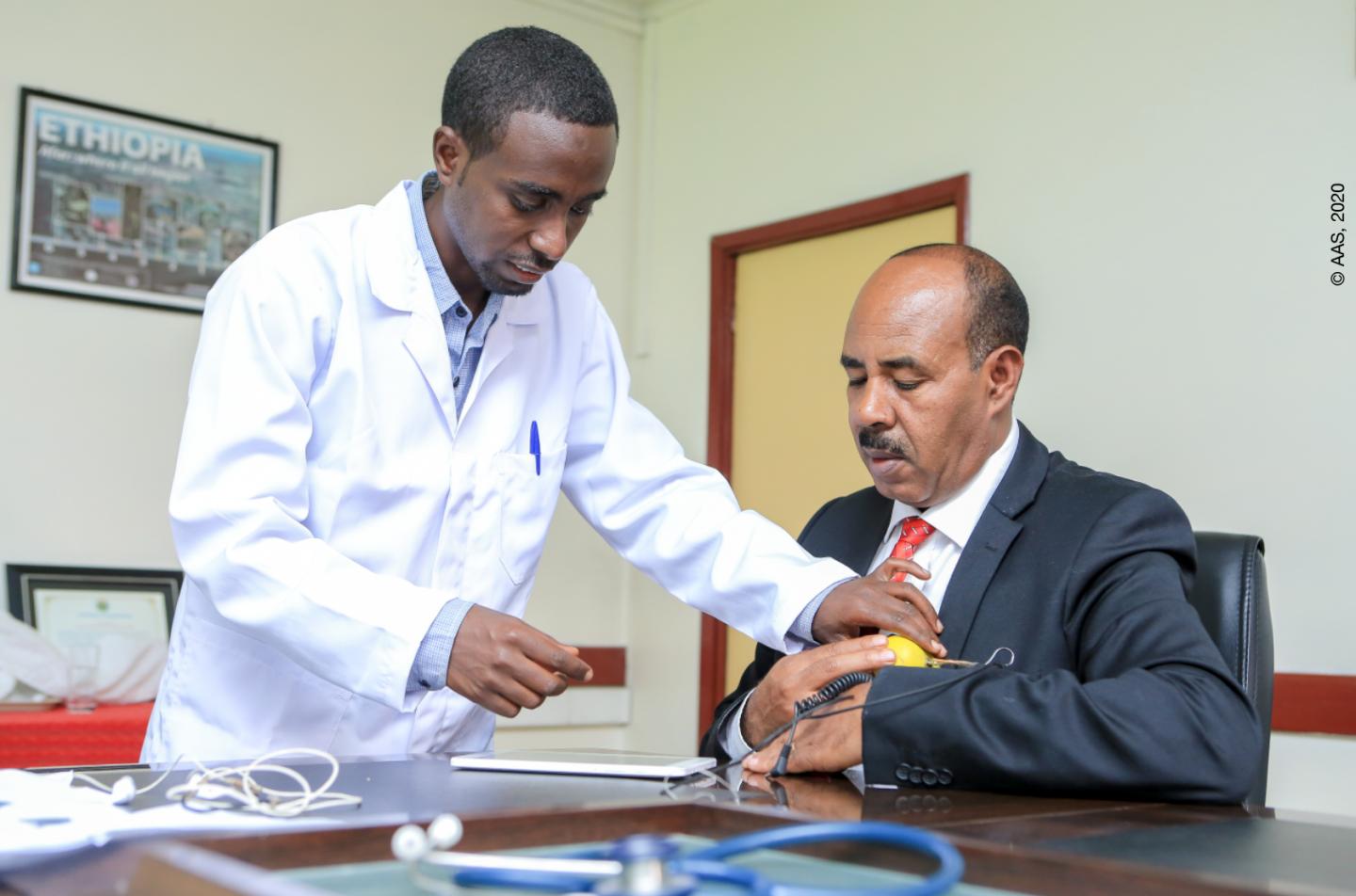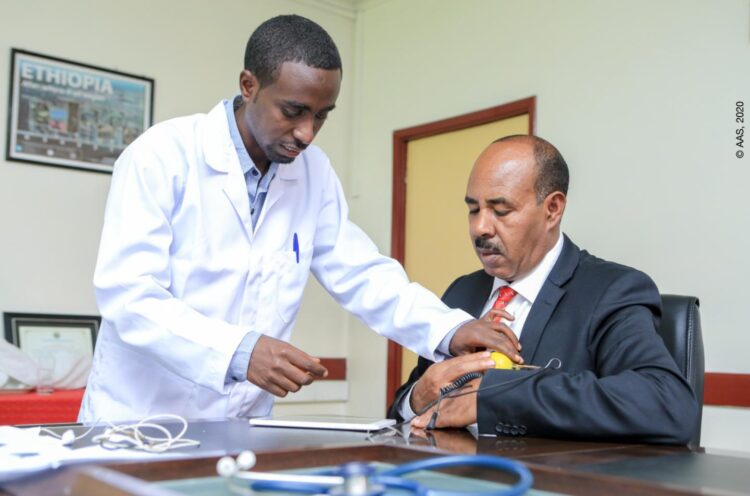
Credit: @AAS 2020
There is a disconnect between industry, angel donors, venture capitalists and research in Africa. This has resulted in few Research and Development (R&D) outputs being scaled up or commercialized and a negligible number of patents at 0.6 percent, according to the World Intellectual Property Organization. The lack of funding also compounds the challenge meaning that quite often African innovations will rarely grow beyond just being an idea or prototype in the laboratories.
The African Academy of Sciences (AAS) today announced the launch of an innovative platform for African innovators to connect with partners who can provide funding, help them scale-up and commercialize their innovations or promote their uptake in policy.
The Grand Challenges Africa Innovation Network GCAiN “will provide innovators with the resources they need to succeed. This includes mentors, potential new markets and funding,” said Dr Moses Alobo, Grand Challenges Africa (GC Africa) Programme Manager. “Innovation is a risky affair that requires long term investment and whose results are not always immediate. This is the reason we at GC Africa are providing this as a sustainable and long-term funding strategy for research and innovation,” he added.
GCAiN is a product of GC Africa, an AAS programme that seeks to promote Africa-led scientific innovations to help countries achieve the African Union Science Technology and Innovations Strategy for Africa (STISA 2024) and the United Nations Sustainable Development Goals (SDGs 2030) by awarding seed and full grants to the continent’s most impressive innovators.
GCAiN has been developed in response to a survey carried out in 2018 on 490 African-based innovators who were beneficiaries of the seed and transition to scale grants from Grand Challenges partners, such as the Bill & Melinda Gates Foundation, USAID and Grand Challenges Canada. Many of these innovators have developed transformative innovations that are tackling maternal, neonatal, and child health, providing school feeding programmes and sanitary towels that are keeping girls in schools and transforming societies. The innovators have, however, identified limited entrepreneurial capacity development, poor funding, unfavorable regulatory policies, and lack of access to essential market connections as key innovation setbacks.
By enabling innovation partners that include funders, venture capitalists, incubators and policymakers to also be part of the virtual network, GCAiN will link innovators with the various innovation players in a cost-effective way to ease access to information across the value chain and also to shed insights on the growth of innovations across the continent.
GCAiN also seeks to promote intra-African collaboration to ensure local solutions for local problems.
“This is a game-changer for the innovation space and will be crucial in ensuring that our ideas get the support they need to make it to market and to impact African lives,” said Laud Anthony Basing of Incas Diagnostics in Ghana.
GCAiN is accessible via http://gcain.
###
Notes to editors:
The African Academy of Sciences
The African Academy of Sciences (AAS) is a non-aligned, non-political, not-for-profit pan African organisation whose vision is to see transformed lives on the African continent through science.
The AAS’s tripartite mandate is recognising excellence through the AAS’ highly prestigious fellowship, Affiliates, and award schemes, providing advisory and think tank functions for shaping Africa’s Science, Technology and Innovation (STI) strategies and policies and implementing key STI programmes addressing Africa’s developmental challenges through the agenda-setting, funding, and programme implementing platform, the Alliance for Accelerating Excellence in Science in Africa (AESA).
Join us on Facebook and Twitter @AASciences and learn more at https:/
Grand Challenges Africa
Grand Challenges is a family of initiatives fostering innovation to solve key problems in global health and development for those most in need. It seeks to establish a portfolio of projects with complementary approaches that encompass multiple types of innovation, including innovation in biological research, medical health technology and product development, service delivery, and behavior change. Grand Challenges initiatives, therefore, seek to engage diverse investigators, including those outside of the areas that might traditionally be associated with the initiative. The challenge also encourages partnerships that bring together investigators from diverse organizations, including for-profit institutions, non-governmental organizations, academic and health research institutions, foundations, and civil society groups. Today, a variety of funding partners use “Grand Challenges” to accelerate research, creating an expanding network of funding and research partnerships spanning diverse topics (Bill and Melinda Gates Foundation, Grand Challenges Canada, United States Agency for International Development, Grand Challenges Brazil, Grand Challenges India, Grand Challenges South Africa, Grand Challenges Africa).
For further information, please contact
Simon Ndoria
[email protected] +254 733 990 490 I +254 20 806 0674
For media enquiries, please contact
Davies Mbela
[email protected] + 254 783 681115 I +254 20 806 0674
Copyright © 2020
Our mailing address is:
Media Contact
Deborah Fay Ndlovu
[email protected]
Original Source
https:/





